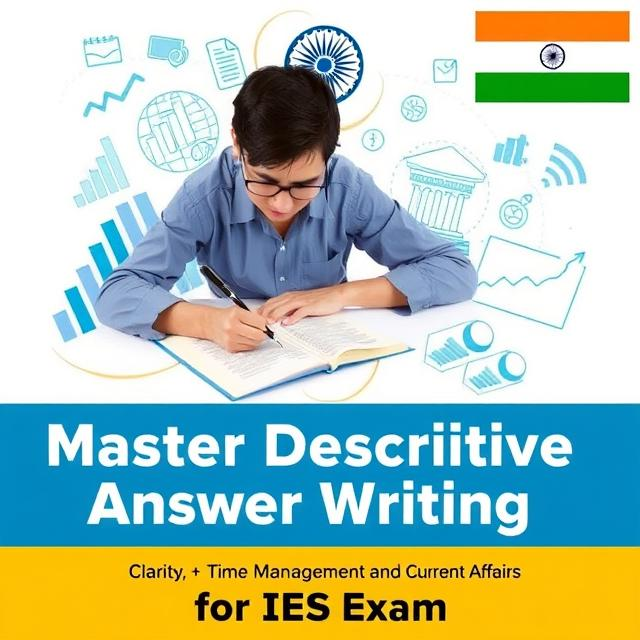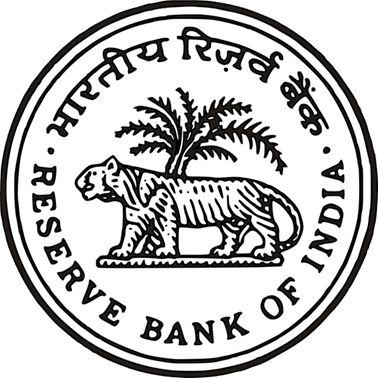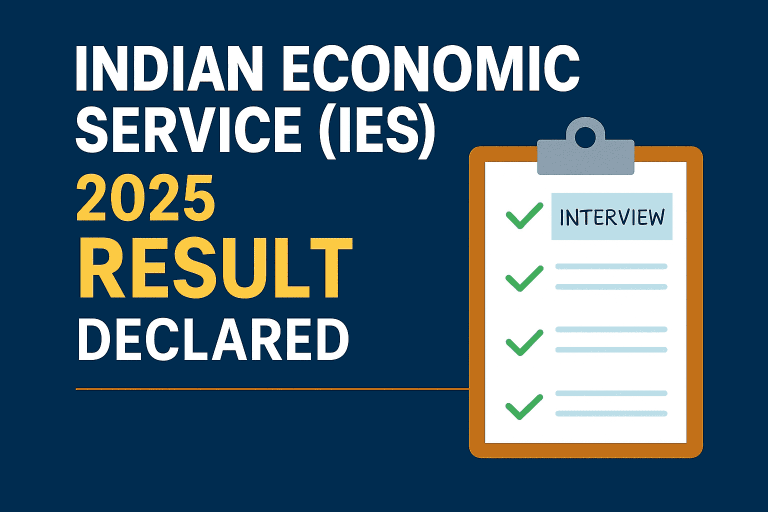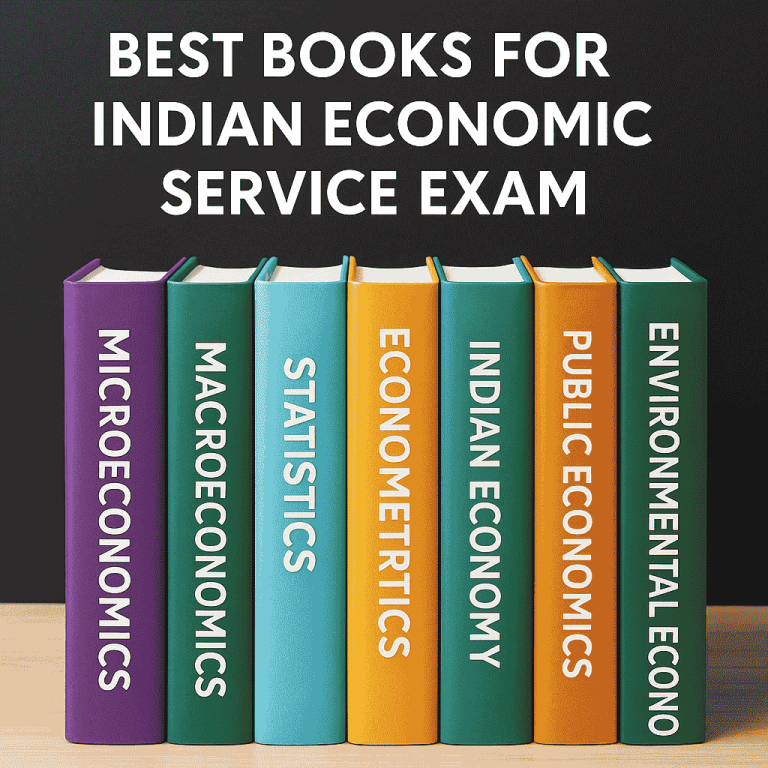The Indian Economic Service (IES) exam is one of the most prestigious competitive exams for economics graduates in India. Conducted by the Union Public Service Commission (UPSC), the Indian Economic Service (IES) Exam tests candidates on their knowledge of economic theories, policies, and their ability to apply this knowledge to real-world scenarios. One of the most critical aspects of cracking the Indian Economic Service (IES) is mastering the art of Indian Economic Service (IES) answer writing. In this blog, we’ll explore strategies, tips, and techniques to help you excel in answer writing for the Indian Economic Service (IES) exam.
Why is Answer Writing Crucial for the Indian Economic Service (IES) Exam?
The Indian Economic Service (IES) exam consists of 6 descriptive papers that evaluate your ability to:
Analyze economic issues critically.
Present arguments logically and coherently.
Apply economic theories to practical problems.
Communicate ideas effectively within a limited time frame.
Your answers are NOT just a test of your knowledge but also your ability to structure, articulate, and present your thoughts clearly.
Here’s how you can improve your answer-writing skills:
1. Understand the Exam Pattern and Syllabus
Before diving into Indian Economic Service (IES) answer writing, familiarize yourself with the Indian Economic Service (IES) Syllabus and Exam Pattern. The written exam consists of six papers, each with descriptive questions. Focus on:
Core Subjects: Microeconomics, Macroeconomics, Statistics, and Indian Economy.
Current Affairs: Recent economic developments, government policies, and global trends.
2. Strong Conceptual Foundation using Indian Economic Service (IES) Booklist
The first step to improving Indian Economic Service (IES) answer writing requires a crystal-clear understanding of the all topics in Indian Economic Service (IES) Syllabus. Strengthen your conceptual knowledge by:
Reading recommended Indian Economic Service (IES) booklist like:
Microeconomics: Pindyck & Rubinfeld, Varian
Macroeconomics: Olivier Blanchard, Dornbusch & Fischer
Indian Economy: Mishra & Puri, Uma Kapila
Staying updated with the Economic Survey, Union Budget, and RBI reports.
An unparalleled source to master Indian Economic Service (IES) Syllabus is Testonomics Indian Economic Service (IES) coaching course. Testonomics IES coaching provides comprehensive guidance through structured video lectures designed as per Indian Economic Service (IES) Syllabus and improve your conceptual clarity and develop analytical precision.
3. Structure Your Answers Effectively
Mastering Indian Economic Service (IES) answer writing requires understanding of what constitutes a good answer. A well-structured Indian Economic Service (IES) answer is one which is easy to read and understand. Follow this format:
Introduction: Define key terms and provide a brief overview of the topic.
Body: Present your arguments logically with headings, subheadings, and bullet points.
Use diagrams, graphs, and equations to support your answers.
Include real-world examples or case studies to illustrate your points.
Conclusion: Summarize your answer and provide policy recommendations if applicable.
4. Use Diagrams and Graphs in Indian Economic Service (IES) Answers
Economic concepts are often best explained visually. Incorporate relevant diagrams like:
Supply and demand curves
IS-LM model
Phillips curve
GDP growth charts
Ensure that your diagrams are neatly drawn, properly labeled, and explained in the text.
5. Practice Regularly
Indian Economic Service (IES) answer writing is a skill that improves with practice. Here’s how to practice effectively:
Timed Practice: Simulate exam conditions by writing answers within the time limit.
Previous Year Papers: Solve past Indian Economic Service (IES) Previous Year Papers (PYQs) to understand the type of questions asked.
Mock Tests: Take Indian Economic Service (IES) Mock Test Series to improve speed and accuracy.
6. Incorporate Current Affairs
Indian Economic Service (IES) answer writing requires a strong grasp over current economic issues. Relate your answers to:
Recent government policies (e.g., GST, Atmanirbhar Bharat)
RBI’s monetary policy updates
Global economic trends (e.g., inflation, trade wars, climate change)
Use data and statistics from reliable sources like the Economic Survey, RBI reports, and World Bank.
7. Focus on Clarity and Precision
Write in simple, clear, and concise language.
Avoid unnecessary jargon and explain technical terms when used.
Use short paragraphs and bullet points to improve readability.
8. Improve Presentation Skills
Presentation plays a significant role in scoring high marks. Follow these tips:
Write neatly and legibly.
Use headings, subheadings, and underlining to highlight key points.
Leave adequate space between paragraphs for better readability.
9. Analyze Model Answers
Study topper’s answer sheets or model answers to understand what makes a high-scoring answer. Identify gaps in your own answers and work on improving them.
10. Time Management
Time management is crucial during the exam. Allocate your time wisely:
1-2 minutes: Plan and outline your answer.
Last 1-2 minutes: Review and edit your answer.
Remaining Time: Write the answer
11. Stay Consistent and Motivated
Consistency is key to mastering answer writing. Set small, achievable goals and track your progress. Stay motivated by reminding yourself of your ultimate goal: joining the prestigious Indian Economic Service.
Sample Answer Structure
Question: Discuss the impact of inflation on the Indian economy.
Answer:
Introduction: Define inflation and its types (demand-pull, cost-push).
Body:
Impact on consumers (reduced purchasing power).
Impact on producers (increased input costs).
Impact on government (fiscal deficit, subsidies).
Use a diagram
Provide recent data on inflation trends in India.
Conclusion: Summarize the effects and suggest policy measures (e.g., monetary tightening, supply-side reforms).
Why candidates love Testonomics Indian Economic Service Test Series
Testonomics Indian Economic Service Test Series is designed specifically to help you master the art of answer writing and excel in the IES exam. With a focus on the latest exam pattern and syllabus, our test series includes high-quality, UPSC-level questions that cover both theoretical concepts and current economic developments.
Each test is meticulously crafted to simulate the actual exam pattern, helping you improve your time management, accuracy, and presentation skills. Detailed solutions and model answers provide insights into what examiners look for, while performance analytics help you identify your strengths and weaknesses.
Whether you’re struggling with structuring answers or need practice with diagrams and data interpretation, our test series is your ultimate tool to boost confidence and ensure success in the Indian Economic Service (IES) exam. Join now and take a step closer to achieving your dream of joining the Indian Economic Service !
Final Thoughts
Mastering answer writing for the Indian Economic Service (IES) exam requires a combination of subject knowledge, structured thinking, and effective presentation. By following the strategies outlined in this blog, you can significantly improve your answer-writing skills and boost your chances of success. Remember, practice is the key to perfection. Start today, stay consistent, and you’ll be well on your way to cracking the IES exam!
Good luck!
If you found this guide helpful, share it with your fellow aspirants. For more tips and resources on the IES exam, subscribe to our Telegram Channel !





